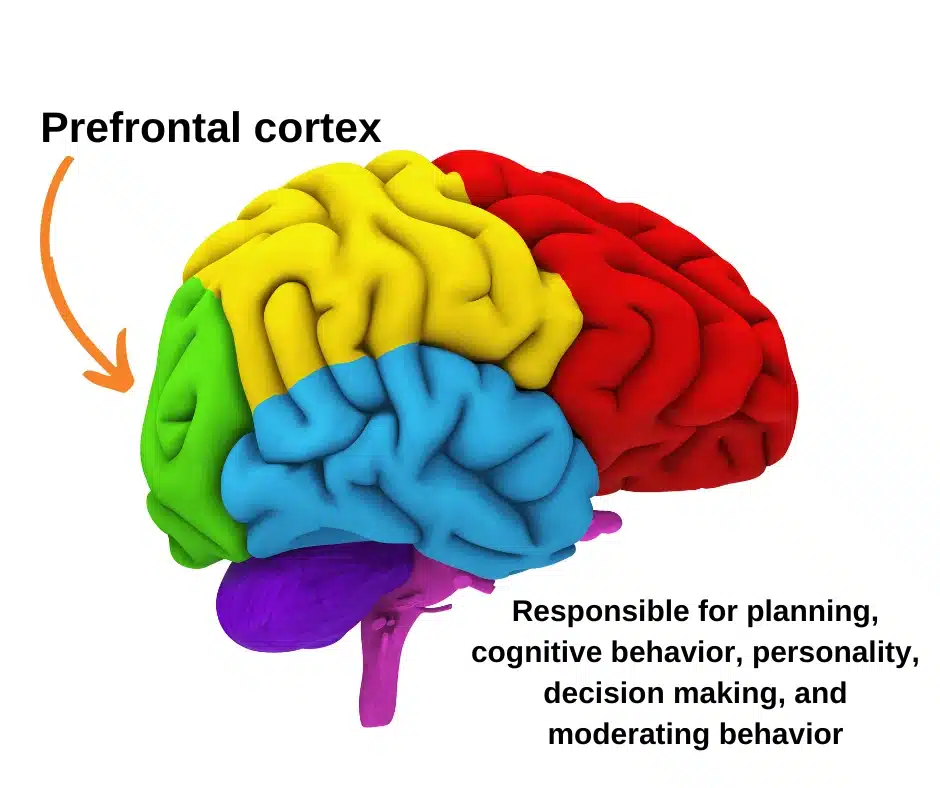Updated on July 18, 2023
Why do teenagers turn into Jekyll and Hyde around age 13? What happens to the child who used to want to go wherever the parent went, complied with household rules, and enjoyed doing things with the family?
It’s a question that parents have been asking since the concept of “juvenile delinquency” emerged in the 1930s, defined by such movies as “Angels with Dirty Faces” and the “Bowery Boys” film series.
Finding yourself in this situation is tough and unimaginable for any mom. Intense emotions, yelling, despair, she lashes out at you, and you feel like she’s become a completely different person. Where does all this hostility come from? You ask yourself: “What happened to my sweet little girl?”
We want to offer real solutions and help you understand what’s happening with your girl and what you can do to improve the mother-daughter relationship.
Why is Your Daugther Acting Out of Control?
Today, we understand that much of a teen’s behavior is dominated by complex biological and psychological changes over which they have no control. Let’s look at the adolescent brain, for example.
If you are a parent who lies awake night after night wondering “why my daughter hates me,” learning about the emotional turmoil brewing in your teen’s brain can help provide insight into why your daughter says such hurtful things to you.
Why Do Teenage Girls Lack Emotional Self-Control?
The adolescent limbic system is vulnerable to rapidly rising levels of testosterone and estrogen. Since the limbic system (lower area of the brain) regulates emotions, self-control, and decision-making, it is normal for teens to speak and act without taking the time to consider the consequences.
Also, be aware that since teens cannot wholly manage their emotions and thought processes, they tend to see things in black and white. In other words, they either “hate” something or they “love” something. A more rational “in-between” perspective doesn’t clearly appear until they become young adults.
Let’s Try and Focus on “Good Teen Behaviors”
Studies indicate that the teen brain’s significant “re-wiring” occurs throughout adolescence and even into early adulthood. Moreover, teenagers tend to focus more heavily on positive experiences while dismissing the impact of negative experiences.
Alternately, adults will deliberately think about the repercussions of negative experiences so that they can later make rational decisions about taking the same actions. The adolescent part of the brain involved in making rational decisions (prefrontal cortex) is not mature enough yet to be expected to “think” like an adult.

Hormones, Neurotransmitters, and Teen Angst
In addition to hormones, levels of neurotransmitters like serotonin and dopamine fluctuate wildly in the teen’s brain. Teens will naturally become moody, impulsive, depressed, and irritable when levels fall.
As the adolescent brain matures, the flow of brain chemicals stabilizes, and the older teen/young adult’s angry moodiness should appear less frequently.
Teenagers rely 75 percent of the time on emotional regions of the brain (limbic system, amygdala) to interpret other people’s intentional states. This means that when you and your teen daughter are having a quarrel, and you are trying to maintain a calm expression on your face, she will likely view your expression as hostile.
Just be aware that during contentious moments with your daughter, her speech and actions are powerfully energized by raw, impetuous emotions arising from an old, instinct-driven part of her brain.
Another reason why your teen daughter is rolling her eyes at you and claiming she doesn’t want anything to do with you could involve her social life. It’s certainly not classified information that adolescents consider being liked and accepted by their peers more important than anything else in their lives.
With teens having 24/7 access to social media via cell phones, peer pressure is a major source of stress at school and online. Unfortunately, peer pressure is much more complicated and bothersome in your teenager’s world than it was in your world.
Stop and consider the possibility that your daughter may have had a fight with her best friend or felt “left out” of a conversation at school when she says she hates you. She could simply be taking out her dejection on a safe target–you.
My Daughter Hates Me! What Should I Do to Repair Our Relationship?
The first thing a parent should tell themselves when a teenage daughter claims, “I hate you!” is this:
Don’t take it personally.
Remember what you just read about the chemical storm roiling in your teen’s brain? It’s not uncommon for a parent to ask their teenager why they were so mad at them the morning after the confrontation, only for the teen to look at them quizzically and say, “What are you talking about? I’m not mad at you”.
Understand that if your teen forgets all about “hating” you, it is because they can’t fully process negative experiences. The brain is just too busy rewiring itself to function like an adult brain. So, take a deep breath and don’t overreact to every provocative word or eye roll your teen throws at you.
When you find yourself responding resentfully to a teen outburst, remember that this type of combative response is signaling to your daughter that she is powerful enough to manipulate you.
Teenagers who are troubled and uncertain about something that’s happened to them, whether it involves school, peers, or social media, desperately want security and reassurance from parents that everything is going to be OK.
Teens worry that if they lash out at friends because they are upset and unhappy, that friend may decide not to be their friend anymore. On the other hand, teenagers know that parents won’t decide to stop being their parents anymore if they take out their frustrations on a parent.
All parents of unpredictable adolescents grapple with the fact that although their teen always seems indifferent or bitterly angry with them, their child still craves acceptance, approval, and love from them.
Somewhere inside the moody, sullen teenager you once cradled in your arms is a person caught between the carefree days of childhood and the bewildering jungle called adolescence. Understand they are trying their best to cope with physical and mental changes they have little control over–and they genuinely want you to help them.
All parents of unpredictable adolescents grapple with the fact that although their teen always seems indifferent or bitterly angry with them, their child still craves acceptance, approval, and love from them.
5 Tips for Dealing with a Daughter Who Says She Hates You (But Really Loves You)
1. Stay aware of your stress and anxiety levels. If you feel the urge to talk rudely or loudly to your daughter, stop yourself and breathe. Think before you speak.
2. Let your teen know you will be there whenever she wants to talk to you. You’re likely to be waved away or snarled at, but it is important that your child knows you care about her no matter what happens between the two of you.
3. Find something to talk about other than topics that may trigger an argument. For example, don’t talk about your teen’s choice of clothes, cosmetics, or friends. Try to connect by bringing up the latest gossip about her favorite celebrities, movies, or music.
Don’t try to be your daughter’s BFF, but do try to get a peaceful conversation started. Once you two are talking, your teenager will likely feel less uptight and more comfortable discussing personal topics.
4. Listen to what your teen daughter has to say without interrupting, judging, offering advice, or criticizing. Keep your eyes focused on your teen’s eyes and not on her nonverbal gesturing. She may not look into your eyes during an argument, but she knows you are listening to her by the way you are concentrating on her as a whole person.
5. Prepare yourself to be rejected when you make an effort to connect. It may take several attempts to be successful. Stay calm and relaxed following an “I hate you”! encounter but never stop trying. Some teens cool down faster than others.
Some teens need more time to move on from a negative experience. It will take patience, perseverance, and multiple efforts to achieve a real breakthrough. If you feel like your composure is dissolving, re-read the beginning of this article that talks about what is going on in your teen’s brain. Teenagers need their parents’ love and support more than ever during adolescence.
LEARN MORE ABOUT WHAT’S HAPPENING WITH YOUR DAUGHTER:
Take the Troubled Teen Assessment Quiz
You may be interested in these other articles about parents coping or dealing with difficult teens:
Teen Freedom: How Much is Right for My Child?



















